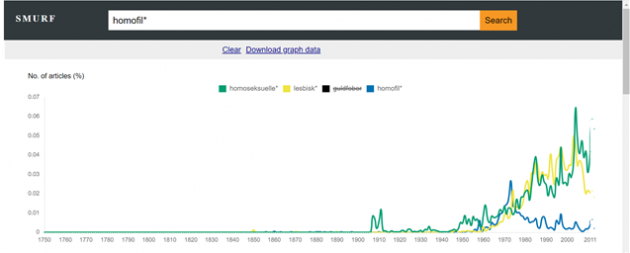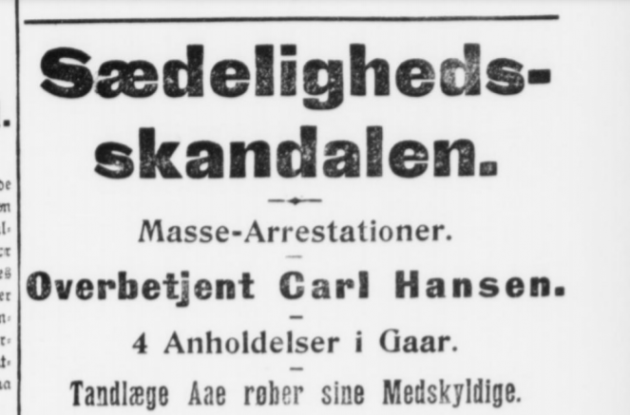LGBTI+ materials at Royal Danish Library
You can find a lot of knowledge about LGBTI+ in our physical and digital collections. Some you can access digitally, some you can either borrow or access if you come to the library.
Books and articles
In our library system, you have access to a comprehensive selection of Danish and foreign scientific articles and books. For example, if you are interested in books in Danish on LGBTI+ topics, you can easily get an overview here.
Or if you would like an overview of which LGBTI+ topics are being researched right now, you can see the last three years of international articles and books that are free to access.
Magazines
The first Danish member magazine for the Danish LGBTI+ movement, “Vennen”, was first published in 1949, and several other LGBTI+ magazines have since followed suit. Get an overview of the most important member magazines.
As research into LGBTI+ topics has grown significantly in recent decades, the field has also acquired its own international scientific journals. Get an overview of some of the most important LGBTI+ magazines.
Newspapers
In the newspaper database Mediestream, which contains a large part of the Danish newspapers through time, you can read how LGBTI+ topics have been described and discussed in the newspapers. You can read, for example, about Superintendent Carl Hansen, who was arrested on November 22 in 1906 for having sex with men. The case, which also involved the arrest of several others involved and lasted for most of a year, ended with 60 days in jail for the superintendent.
You can also use the SMURF visualisation tool to see when and how much a word or phrase has been used in the newspapers.

Photo: Det Kgl. Bibliotek
Photographs
In our digital collections, you can find portraits of Herman Bang, Marie Luplau & Emilie Mundt, Nathalie Zahle, Poul Andræ and many others.
Manuscripts
In our manuscript collection, you can find letters and other archive material by Axel Axgil and Herman Bang.
Why are all your materials so old?
Many of the images and texts we have digitised are from the 19th century. It may seem paradoxical when they are from a period in time where homosexuality was illegal, and one may ask why there are no photos from, for example, the 1970s, 1980s or 00s, when homosexuals were far more open about their sexuality? This is due to several different conditions, which you can read a little about below.
The creator has the right to copy and distribute
We do not own the copyright to our materials. Copyright typically lasts 70 years from the creator's death. As long as a work is protected by copyright, others, including libraries, may not use the work. However, there are a few exceptions to this - for example, lending books and displaying photos at exhibitions and so on.
Missing in the collections
We also have other challenges. The collections are lacking in material from the period 1950-1990, so there is simply not much to digitise. In the 2000s, we are a little better off because the library has collected the Danish part of the Internet through the online archive, and here there are many pictures and texts. They may, however, only be made available to researchers.
Protection of particularly sensitive personal information
Copyright is not the only legislation that the library is subject to. The General Data Protection Regulation ensures that information about personal matters cannot be shared digitally. Here information about sexuality and political beliefs is in the category "special personal information". It is important to protect LGBTI+ people, and it makes good sense to let people decide for themselves whether or not they want information about their sexuality on the Internet.
